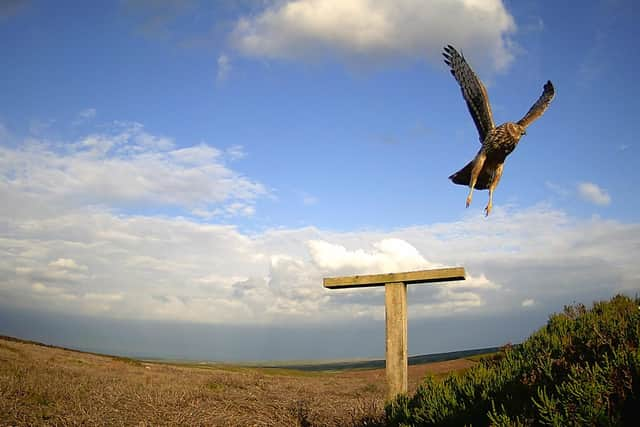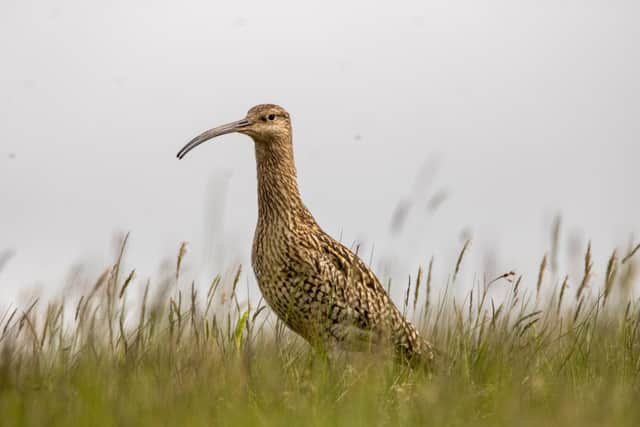Yorkshire estate recognised for conservation efforts in protecting Britain's most persecuted bird the hen harrier
The hen harrier, once a common sight across uplands and heather moorlands, is now one of the UK’s rarest bird species with fewer than 700 breeding pairs.
North Yorkshire’s Swinton Estate has been a partner within the Government’s hen harrier action plan since 2016, with some 23 chicks successfully fledging there since 2013.
Advertisement
Hide AdAdvertisement
Hide AdGamekeepers carefully monitor nests to keep chicks from persecution and providing extra food to breeding adults to help ensure the survival of their young.


Now, as it is recognised within the top one per cent of landholdings in the UK for its breeding hen harrier population, head of the family-run estate Mark Cunliffe-Lister has spoken of the importance of such actions to boost bio-diversity.
Mr Cunliffe-Lister, who is also chairman of the Moorland Association, said: “Our commitment to help the hen harrier population return to ‘favourable conservation status’ is working as more and more of these charismatic birds are now being seen on the land we manage, coupled with the remarkable increase in breeding success.
“Hen harriers, curlews and other ground nesting birds are all flourishing on our carefully managed moors, bucking the trend of severe decline elsewhere.
Advertisement
Hide AdAdvertisement
Hide AdHe added: “Practical conservation action in the uplands is a key element in boosting England’s biodiversity.”


The hen harrier, on the RSPB’s red list as one of the most endangered birds of prey, was driven almost to extinction by 1900 as a breeding bird on mainland Britain.
Under conservation efforts at Swinton Estate, winter roosts are monitored to protect them from persecution or disturbance, with some satellite tagged with Natural England keep an eye on behaviours and migration patterns.
Gamekeepers provide supplementary food to adult hen harriers to boost fledging success of their young, whilst helping protect chicks of other rare species from predation.
Advertisement
Hide AdAdvertisement
Hide AdThe estate is also engaged in trial brood management schemes, looking at the feasibility of rearing chicks in captivity before releasing them to become healthy adults in the wild.
Last year, some 84 hen harrier chicks fledged in the north of England, the highest number for 35 years.
There were 24 successful nests, 19 of them are on moors actively managed for red grouse, in Northumberland, North Yorkshire, County Durham, Cumbria, South Yorkshire and Lancashire.
Award
Swinton Estate is to receive a ‘Life on Land’ award from Red List Revival for its conservation work for the benefit of rare birds.
Advertisement
Hide AdAdvertisement
Hide AdIn addition to hen harriers the North Yorkshire estate has species such as curlew, golden plover, skylark, meadow pipit and red grouse.
Curlews and skylarks are also red-listed, requiring urgent conservation action, and Swinton is also recognised within the top 10 per cent of landholdings for its conservation efforts with curlews.
Redlist Revival is a charity aimed at promoting successful management of priority species and the factors affecting success, with an initial focus on Birds of Conservation Concern, recording data to calibrate the performance of habitats and species.
___________________________________________________________________________________
Advertisement
Hide AdAdvertisement
Hide AdSupport The Yorkshire Post and become a subscriber today. Your subscription will help us to continue to bring quality news to the people of Yorkshire. In return, you'll see fewer ads on site, get free access to our app and receive exclusive members-only offers. Click here to subscribe.
